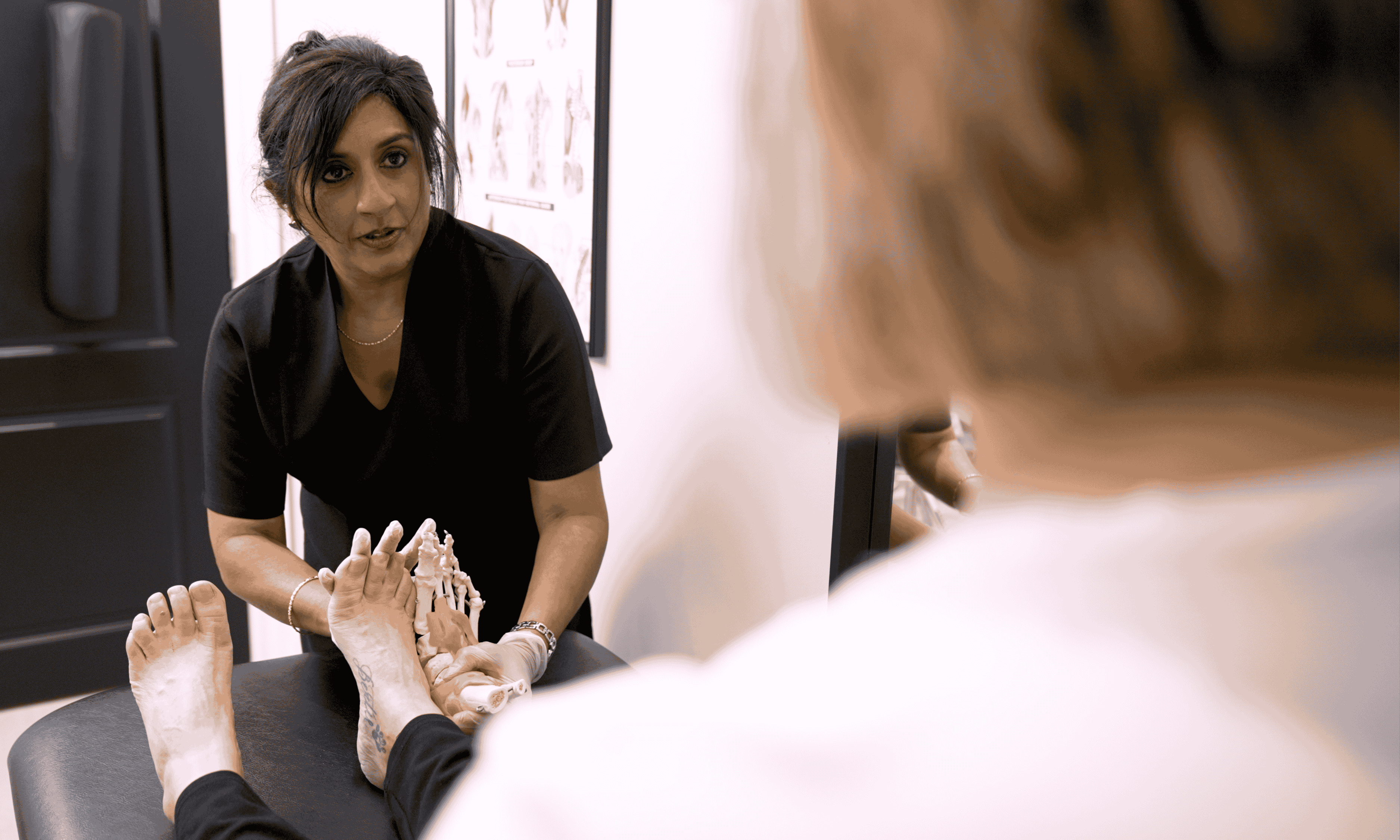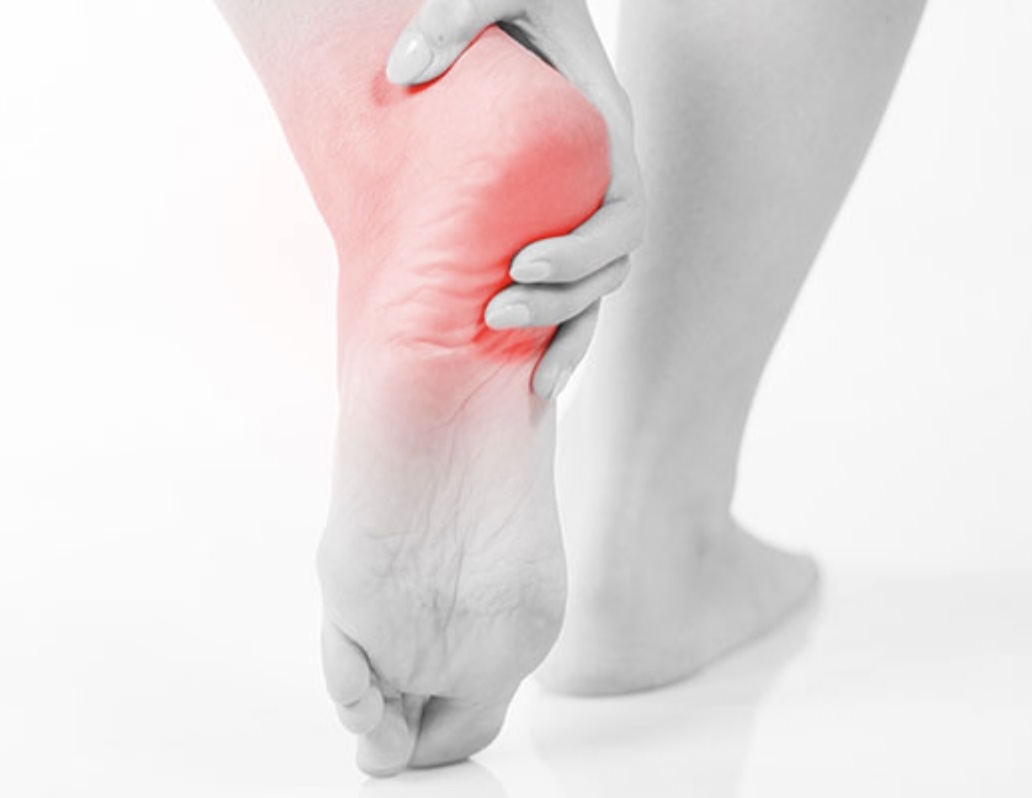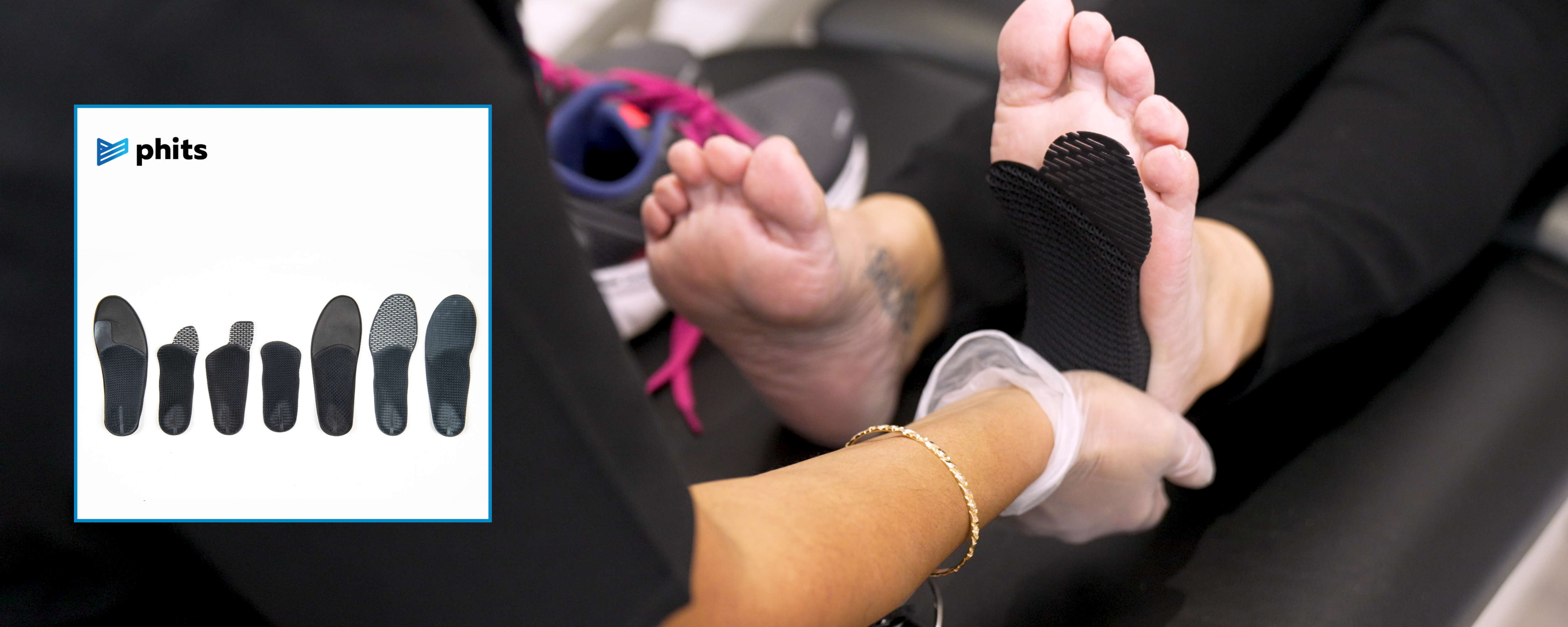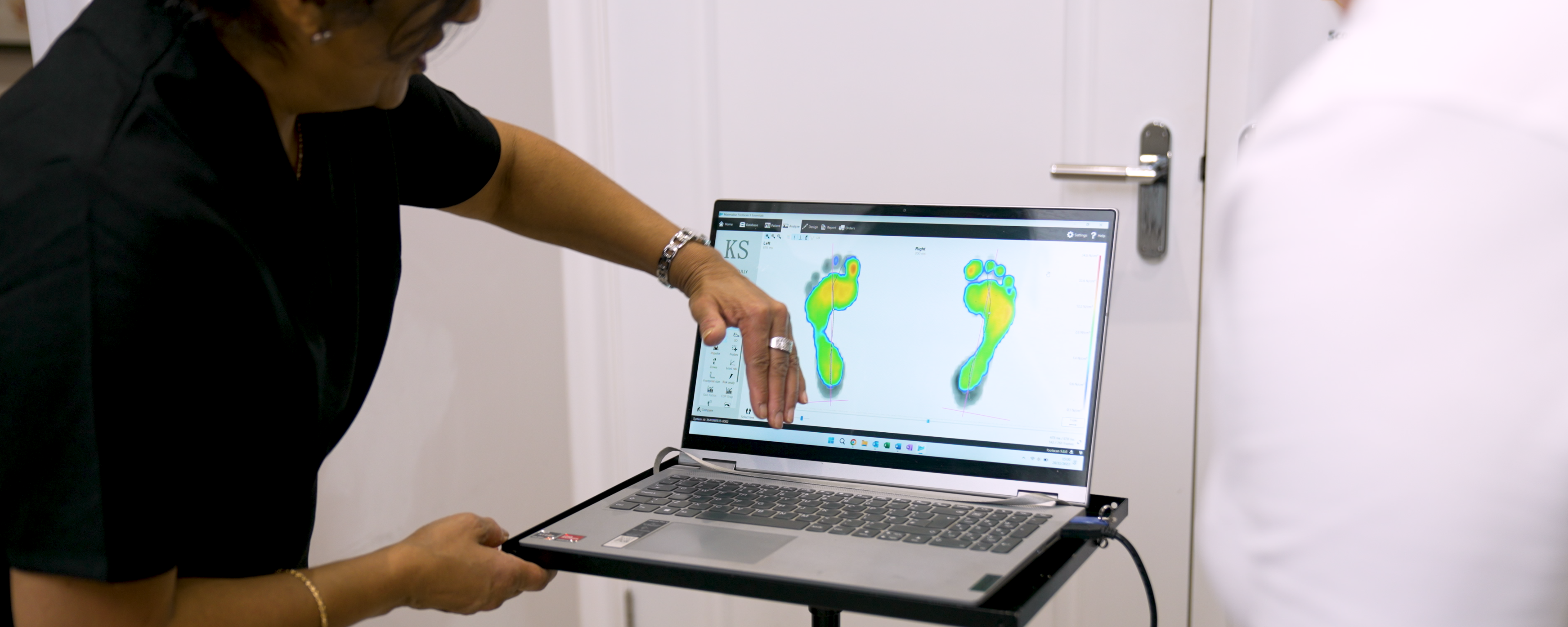Heel & Foot Pain Treatment in Essex
If you are struggling with heel pain or Plantar Fasciitis - you’re in the right place

At Essex Footcare, our trusted HCPC podiatrists use their skill and years of experience to carry out a specialised biomechanical assessment using advanced 3D motion analysis technology to diagnose the cause of your heel pain and create a personalised start-to-finish recovery pathway so you can get back to walking and doing the things you love in comfort and without relying on quick fixes.

If you have these symptoms, we can help you:
✅ Pain under the heel when you get out of bed or after sitting, which reduces after a few steps
✅ A dull ache throughout the day that can worsen the more you move
✅ Sharp or stabbing pain that can extend from under the heel to the arch and even the toes
✅ Pain and strain in the Achilles, sides of the foot, ankle and leg
✅ Tenderness, pain and sensitivity to the touch
✅ Pain aggravated by stretching or climbing stairs
Why choose Essex Footcare for heel pain?
At Essex Footcare (Basildon, Billericay & Romford Clinics), we have experience, expertise and are the trusted specialists, we understand the physical and emotional toll heel pain takes and how heel pain affects your mobility, independence, confidence, mood and day-to-day life.
By the time many patients reach us, they’ve already spent time and money expecting a result:
➡️ Tried stretches, ice and exercises
➡️ Been told to rest, take painkillers or try a steroid injection
➡️ Been elsewhere for treatment and had relief but it has not lasted
➡️ Changed footwear or bought insoles, gel heel cups and special socks
Heel pain is rarely caused by one thing, but a combination of poor foot mechanics, arches that do not function well, unsuitable footwear, changed or increased activity levels, muscle weaknesses and accumulated irritation.
We take time to listen, understand your journey and treat you as a whole person - not just a foot problem. Our role is to detect and unpack every contributing factor to accurately diagnose what’s wrong and what needs changing.
Recovery requires commitment, and we work best with patients who want a complete, structured plan - not more guesswork.
Start your recovery
Why you get heel pain (and why it becomes stubborn)
Heel pain is an umbrella term. Plantar fasciitis is one common cause - but not the only one.
The plantar fascia sits under the heel, it crosses the arch and fans out to the toes, it is like a bundle of elastic bands. It naturally stretches just enough to allow arch movement during normal walking, but when overloaded by poor mechanics, tight muscles and tendons, unsuitable footwear or increased activity, it begins to strain and pull on the heel bone.
This can lead to:
➡️ Micro-tearing
➡️ Irritation and overstretch
➡️ Reduced shock absorption
➡️ Increased tension along the arch
➡️ Heel spurs
➡️ Thickening and stiffness
Left untreated, this becomes a cycle of overload and inflammation, with spreading pain into the arch, Achilles, ball of foot, ankle and even the knee.
The good news is that most cases respond extremely well to a structured treatment pathway.
Your heel pain treatment pathway
PHASE 1 — Comprehensive Heel Pain Consultation
By the time people find us they have already been elsewhere and tried to resolve their problem without success so this is our recommended pathway we start with our gold standard assessment for all heel pain both acute & chronic cases.
Every patient receives this assessment-based appointment:
✅ Full biomechanical examination and medical history taking
✅ 3D gait and motion scanning – learn more
✅ Footwear assessment and personalised recommendations
✅ A guided home rehabilitation plan you can begin immediately
✅ Strapping, padding or a short-term off-the-shelf orthotic if needed (additional cost)
✅ Clear identification of all aggravating factors
✅ A step-by-step explanation of what is delaying recovery - and what will help
Follow-Ups
- Usually 1–2 review appointments
- If symptoms resolve then the pathway is complete and you can be discharged
- If there are still some symptoms which we do see especially in chronic or long-standing cases, we progress to Phase 2 and this involves prescription of custom 3D-printed orthoses. For this we use the data from your initial scan to create specialised insoles that are contoured to your exact dynamic footprint and they are fitted inside selected footwear and help the foot to work better by reducing forces, helping shock absorption and off-loading high pressure areas.
- Upgrade assurance: This is a seamless continuation of your treatment so far, and you would not need to be reassessed for this stage as we will already have all the data from your initial consultation, this stage is only considered if necessary.
PHASE 2 — Custom Orthotics Package
Includes:
✅ Design and laboratory manufacture of a pair of 3D powder printed Phits orthoses
✅ Fitting appointment
✅ One follow-up review
✅ Any necessary adjustments (rare; small lab fee may apply)
Benefits of Phits Orthotics:
✅ Ultra-precise, data-driven design created to your exact dynamic footprint
✅ Lightweight and durable
✅ Excellent for plantar fasciitis, heel pain, pronation, high arches and long-term biomechanical issues
✅ Reduce strain on the plantar fascia and support long-term recovery
Recommended only when clinically appropriate.

During phase 2, we would expect good symptom relief; however, in very complex and chronic recurrent heel pain, there may be residual pain, and we may need to:
1. Review and adjust your treatment
This may include:
Orthotic adjustments
Updated home rehabilitation plan
Review of footwear and lifestyle factors
(Follow-up appointments are chargeable.)
2. Additional treatment options
If progress plateaus:
Shockwave therapy
Laser therapy
(Offered only when clinically appropriate and are chargeable.)
3. If progress remains limited
We may recommend:
Physiotherapy, osteopathy or sports-injury rehab
GP referral for diagnostic imaging (ultrasound, MRI, X-ray)
Our goal is complete, effective care - whether through our clinic or trusted specialists.
“You’re here because this has gone on long enough. We understand you’ve probably tried other things, and our way is simply to do things properly - with care, experience, and the right tools to give you the best chance of real relief.”
Everything was explained clearly and my pain finally makes sense. I wish I’d come sooner






Within weeks of following the plan my heel improved more than with anything I tried before






Professional, knowledgeable and the 3D scan showed exactly what was wrong






Ready to take the first step toward being pain-free?
You can book online and select your preferred clinic (Romford, Basildon or Billericay).
Online bookings require pre-payment.
📞 Call us now to book your heel pain recovery package.
FAQs


